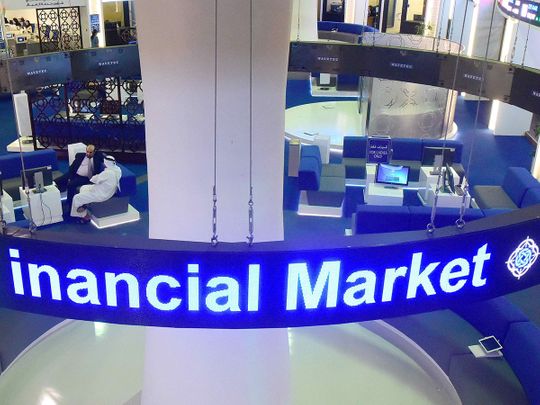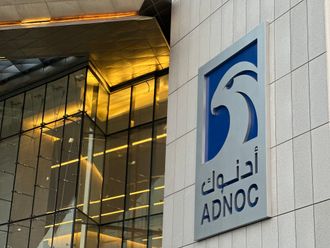
Dubai: Regional investors who were unsure if they should put their hard-earned money in stocks and sought shelter in high dividend-paying companies rightly reaped heaps in dividend payouts this year.
Unruffled by a year where global markets turned heavily volatile, the dividend paying capacity of most UAE stocks helped them retain the top dividend yields in the Middle East and Northern Africa (Mena) region, an analysis by EFG Hermes showed, who estimates a nearly 5.5 per cent dividend yield in 2020.
Total dividends paid in the UAE in the last fiscal year was up by over 16 per cent to reach $10 billion, compared to a year earlier, out of which a little over a half is contributed by the banking sector, which is usually a major contributor. With another fiscal year wrapping up, the story is expected to repeat itself.
“Multiple expansion and earnings growth are the most important for the short run, but dividends are a consistent positive contributor and are a useful source of ‘funding’ in markets like the UAE which stood out in 2019”, said Mohamad Al Hajj, an equities strategist at EFG-Hermes.
The brokerage said the UAE is seen as the most compelling GCC market for 2020 from a ‘bottom-up perspective’, which is a strategy that first considers macroeconomic factors when making an investment decision.
“There is a perennial demand for dividend yielding stocks in the UAE market which is dominated by retail investors and dividend payouts by companies are typically considered to be a healthy sign,” M R Raghu, head of research at the Kuwait Financial Centre (Markaz). “In the recent earnings season most of the company management have indicated higher dividend payouts to reward the investors and we see this trend to continue.”
Emirates NBD delivers
Multiple analysts said Emirates NBD, which had a payout ratio of 22 per cent last year, is well-positioned to increase its dividend in the medium term. Analysts at EFG Hermes said in a note the top lender’s capital buffer is satisfactory, internal capital generation is likely to be strong and risk-weighted assets growth is likely to be moderate.
“Even if there is a sharp deterioration in any sector, for example the real estate, we believe ENBD is well-shielded on the back of its high provision buffer, with a coverage of 127 per cent,” Al Hajj said.
EFG Hermes picked Emaar Development and Ras Al Khaimah Ceramics as its top two dividend payers in the region, estimating that Emaar Development will record a dividend yield of 14.4 per cent in 2020. RAK Ceramics, which had a dividend yield of 8.5 per cent in 2019, is expected to have a yield of 9.7 per cent in the year ahead.
Abu Dhabi’s Aldar Properties, which gained 35 per cent in 2019 despite the challenging UAE real estate market backdrop, offers what analysts termed a “decent” dividend yield, with a potential to rise further. Aldar last year acquired $1 billion worth of real estate assets from the state-owned Tourism Development & Investment Company (TDIC).
Going into 2020, Dubai-based logistics player Aramex offers a “lucrative” dividend yield, analysts at EFG Hermes said, adding that Expo 2020 may boost its 2020 share price by driving an increase in UAE volumes and potentially increasing foreign ownership limits.
Analysts have also flagged that UAE’s low-cost carrier Air Arabia offers a high chance of dividend resumption in early 2020. In energy, ADNOC Distribution is expected to pay shareholders Dh2.39 billion in 2019, at Dh19.10 fils per share, which reflects a 62 per cent increase compared to last year’s dividend of Dh1.47 billion.
“As we approach the dividend season in the first half of 2020, we see UAE equities attracting more interest on the back of high yields on offer versus the rest of the MENA region,” analysts at EFG Hermes said in a note.
Abu Dhabi Islamic Bank stock has given a dividend yield of 6.27 per cent in the past five years, followed by National Bank of Ras Al Khaimah, whose dividend yield was at 6.7 per cent since 2013.
ADIB shares witnessed a low of Dh4.29 after it went ex-dividend earlier this year, and the shares have recovered 25 per cent, meaning traders received capital appreciation along with dividends. First Abu Dhabi Bank witnessed a low or Dh13.50 after going ex-dividend, but witnessed sharp recovery of 10 per cent to Dh15.2.












